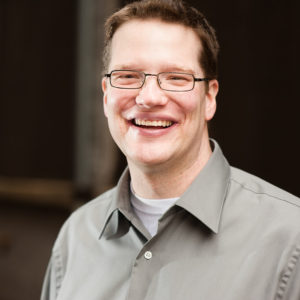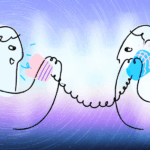
Jeff Finley
Light + Life Executive Editor
Jeff Finley is this magazine’s executive editor. He joined the Light+Life team in 2011 after a dozen years of reporting and editing for Sun-Times Media. He is a member of John Wesley Free Methodist Church where his wife, Jen, serves as the lead pastor.
by Jeff Finley
Different people discuss and promote different kinds of justice: “criminal justice,” “equal justice,” “open justice,” “procedural justice,” “organizational justice,” “spatial justice,” “restorative justice,” “retributive justice,” “environmental justice,” “economic justice,” “moral justice,” “traditional justice,” “transitional justice,” etc. Meanwhile, Christian authors make competing cases for why their fellow believers should or shouldn’t use the phrase “social justice” and whether that concept is consistent with “biblical justice” or “spiritual justice.”
In the midst of all of the justice talk, something may be missing. I rarely see or hear love mentioned or demonstrated in the discussion of justice issues, and that applies to many people who tout their faith in God. A reading of 1 John 4 may be in order because followers of God are commanded to “love one another, for love comes from God. Everyone who loves has been born of God and knows God. Whoever does not love does not know God, because God is love” (v.7–8).
When other people question our pursuit of justice, do we respond rudely or condescendingly? When other people frequently talk about justice, do we mock them as “social justice warriors”? If our consideration of justice leads to animosity toward others, we may be forgetting that “whoever does not love their brother and sister, whom they have seen, cannot love God, whom they have not seen” (v.20).
Thankfully, the Free Methodist view of justice transcends much of the justice divide. The denomination’s core values, as outlined in The Free Methodist Way, include love-driven justice:
Love is the way we demonstrate God’s heart for justice by valuing the image of God in all men, women, and children, acting with compassion toward the oppressed, resisting oppression, and stewarding Creation.
We devote ourselves to our founders’ deep convictions around matters of injustice as they took their stand against the evils of slavery, the oppression of the poor, the marginalization of women, and the abuse of power in the church. Our heart for justice continues and expands today, fueled by God’s holy love for the unborn, the vulnerable, oppressed, marginalized, and people of all races and ethnicities.
The Free Methodist Way is not only to realize a better society, but that all may be reconciled to God and one another in ways that reflect God’s just character.
This month, Bishop Matt Whitehead shares with Light + Life readers that Free Methodists reject the unbiblical view of churches focusing either on evangelism or on compassionate action. He helps us understand that the Bible links righteousness and justice, and God’s justice is “driven by holy love.”
Free Methodist World Missions and the Set Free Movement are driven by this holy love. Free Methodist missionaries spread the gospel and, in the words of Director of Global Church Advocacy Gerald Coates, “plant churches that bring wholeness, holiness and justice to the community.” The Set Free Movement is working to stop human trafficking and set captives free from the streets of Bulgaria to the American strip clubs of the Midwest. Light + Life is grateful to have Kevin Austin, the movement’s director, provide his perspective of how love-driven justice is essential to ending modern-day slavery.
Some Free Methodists are invested in racial understanding and reconciliation with the help of “The Love Required of Us” discussion guide. For this month’s URFM article, I was blessed to interview author Liz Cornell along with other people who have benefited from this important book.
As this month’s Focal Point author, Pastor Peter Chin, has lived out racial reconciliation and other forms of love-driven justice, his ministry efforts have led to interviews with mainstream news media outlets. He also contributes regularly to Our Daily Bread and other leading faith-based publications such as Christianity Today and Relevant. We’re thankful to have Pastor Chin write for Light + Life about how Zacchaeus’ encounter with Jesus’ love changes him from a morally tainted tax collector to a generous practitioner of justice.
Regardless of which adjective we prefer before justice, let’s ask the Holy Spirit to guide us and help us act in compassion for people in need of justice and righteousness. As Brett Heintzman explains, compassion “is the God-given spiritual fruit of a tender heart.”
Where is holy love driving you to seek justice? If you’re not sure, take a moment and ask God to reveal opportunities for you to spread righteousness and justice. After all, “the Lord loves righteousness and justice; the earth is full of his unfailing love” (Psalm 33:5).
+

Jeff Finley
Light + Life Executive Editor
Jeff Finley is this magazine’s executive editor. He joined the Light+Life team in 2011 after a dozen years of reporting and editing for Sun-Times Media. He is a member of John Wesley Free Methodist Church where his wife, Jen, serves as the lead pastor.








